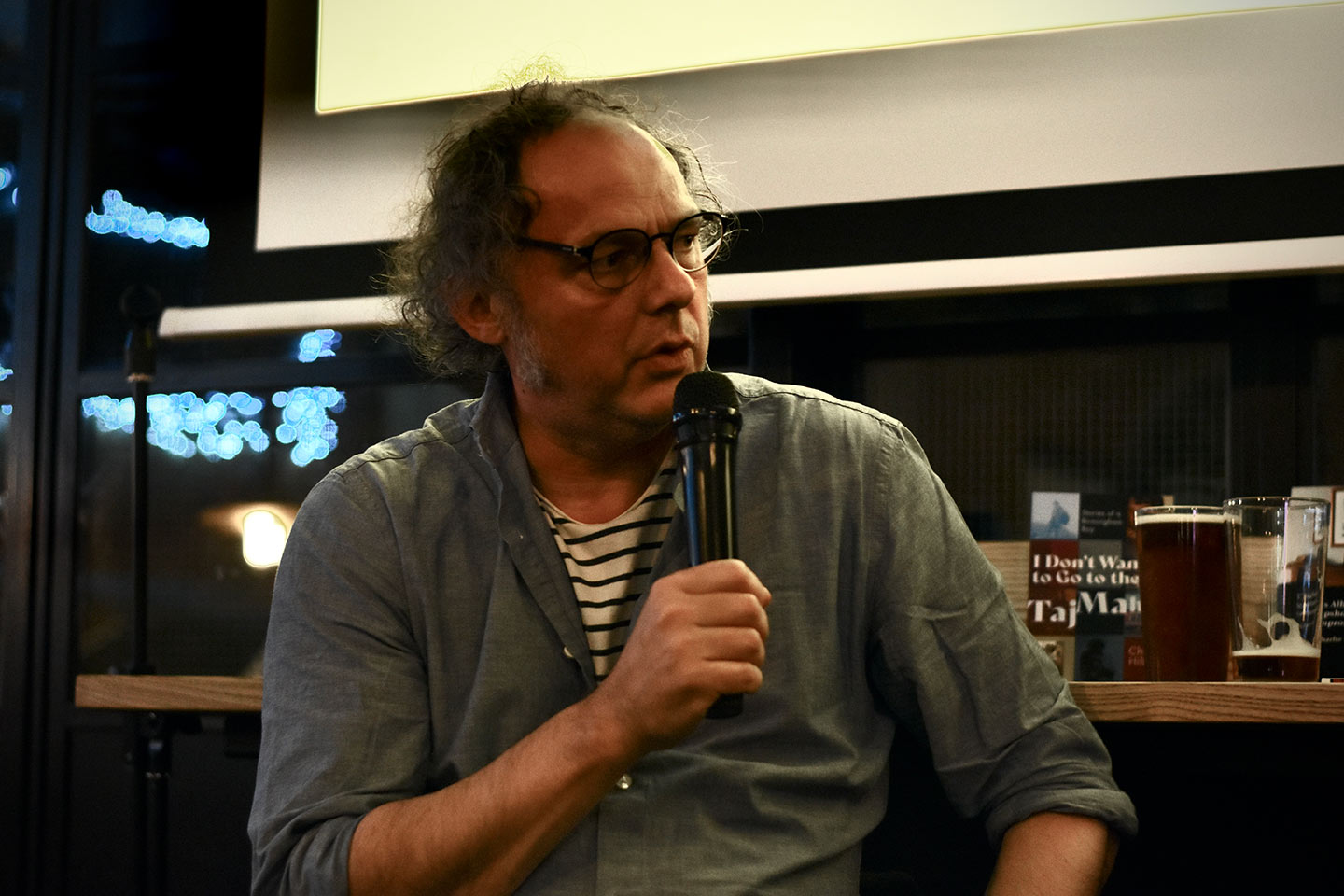Charlie Hill is an internationally-acclaimed author from Birmingham. He has written long and short form memoir, and contemporary, historical and experimental fiction. He has been described by Natalie Haynes as 'the chronicler Birmingham needs' and compared by his fellow writers to Kafka, Beckett and Georges M Perec. His second collection of short stories – Encounters With Everyday Madness – was shortlisted for the 2024 Edge Hill Prize.

Photo by Rebekah Lyndon (@bekah.lyndon)
‘Charlie Hill is a real writer’ Jim Crace
Charlie has been interviewed by Mariella Frostrup on BBC Radio 4’s Open Book, and by Suzi Feay for her Bookbag. His work features on the title track of The Birmingham Poets, an album by Matthew Edwards and the Unfortunates. Short stories have been republished by the Ikon Gallery – to complement the show At Home With Vanley Burke – and taught in South Australian schools. His ‘wonderful’ historical novel The Pirate Queen, was featured as a prize in a competition organised by the Fawcett Society.
'Wonderful... brilliantly inventive absurdist tales from our increasingly fictional reality.'
Joanna Kavenna
He is the co-founder and former Director of a literary festival, the PowWow Festival of Writing, which ran from 2011 to 2017 and featured guests such as Joanne Harris, Alex Wheatle, Stewart Home and Natalie Haynes. He has also appeared at many such events, including Frankfurt’s Literaturm and the Birmingham Literary Festival.
‘tremendous storytelling verve’ Ruth Gilligan
As well as writing books, Charlie has been published by the TLS, the Guardian, the Independent on Sunday, the New Statesman and the Big Issue.
‘touching, funny, melancholy’ AL Kennedy
An occasional teacher, Charlie’s focus is on the sentence, with particular reference to Modernist writing. In addition to running workshops for festivals and in universities, Charlie has devised and delivered a Masterclass on Experimental Writing for Arvon. He is a Fellow of the Royal Literary Fund.
‘As if to confound Wittgenstein, it appears the unexamined life was worth living after all'
Stewart Lee